An Ode to Murcia
Let me introduce you to where I've been living for the last nine months
How to write about Murcia? How could I possibly begin to summarize, to put into words, to condense the last nine months of my life? The city I hardly chose, which at times I hated. A home where I felt immense loneliness. Unable to even make small talk. Self doubt. Secondhand smoke. Do I even speak any Spanish?
I moved to Murcia because it was the closest city to the rural town1 where I was placed for work as an English language assistant at a primary school.
All I knew about Murcia before moving there was that it’s the butt of all the jokes in Spain. It’s the poorest region in the country, dominated by many a huerta (aka agricultural fields, orchards, and the like). Murcia is known for its accent – mocked by the rest of Spain and practically unintelligible for a foreigner like me.
For example, the suffix -ito or -ita in standard Castellano, in Murcia, becomes -ico and -ica. A small difference, perhaps, but quite significant for me. Only after two months of living there did I realize that the cashier at the supermarket was speaking this way when she would ask me, “Cash or card?”. Because the word “card” (tarjeta), was becoming diminutive (tarjetita), but because we’re in Murcia, she was saying tarjetica. Suddenly it clicked. Enchanted with the small interactions I slowly began to understand with clarity.
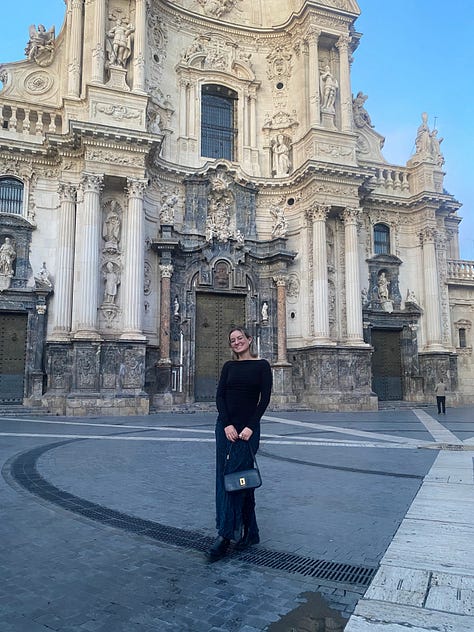
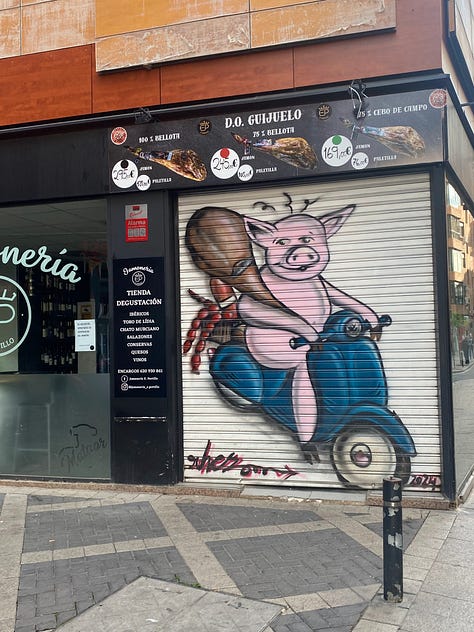
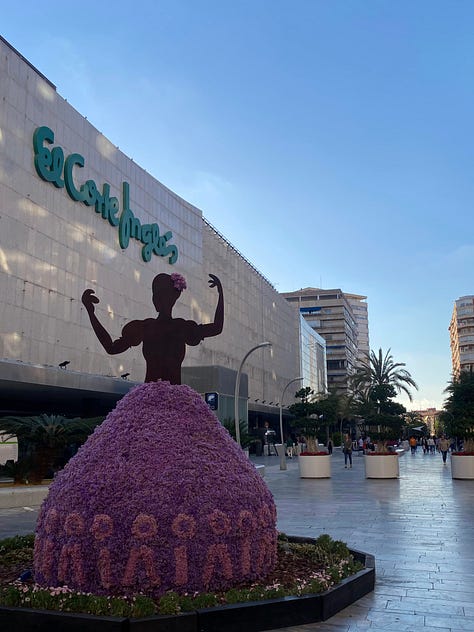
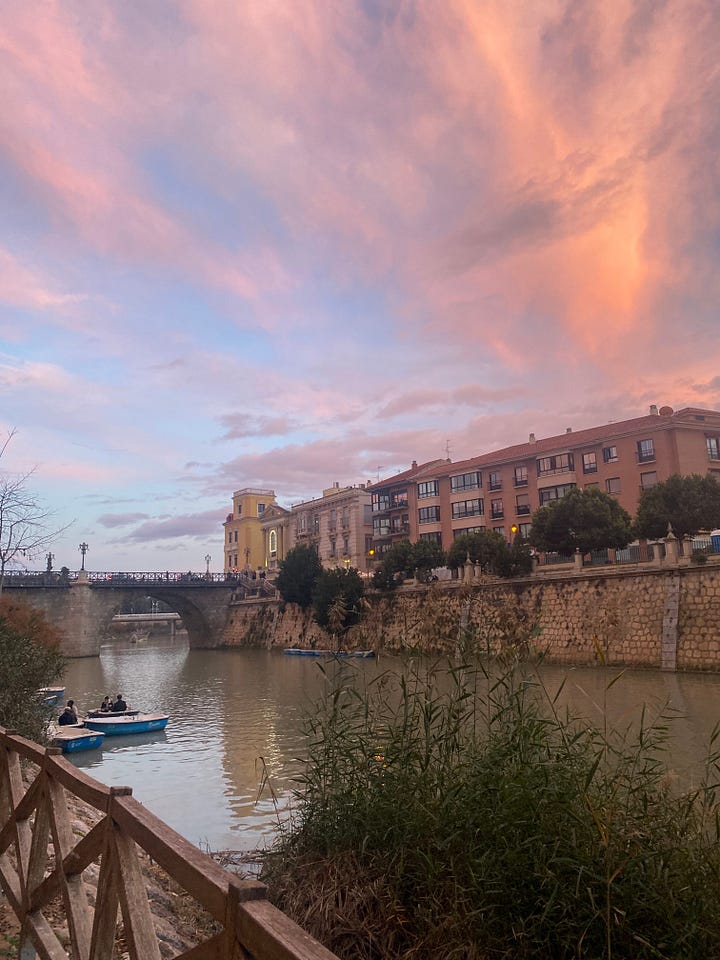
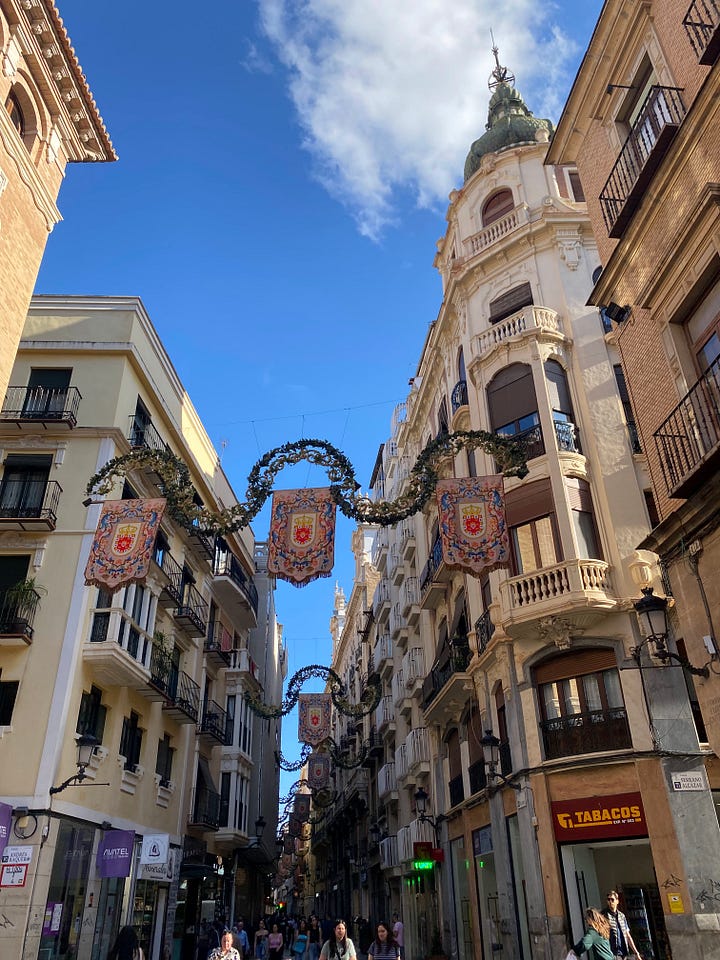
Murcia, I guess, gets a similar rap to poor, Southern parts of the United States, perhaps. Lower class, odd accent that sounds uneducated, weird traditions– the red-headed stepchild. A sleepy town (though it’s the region’s capital city) amongst farmland, where everyone speaks funny.
Oh, and its heat. Nearly every Spanish person warned me of the heat in Murcia. They would sigh in relief when I told them my program ends at the end of May. Oh, good, good. Because you know everyone leaves Murcia in the summer. Too hot here. Everyone goes to the sea . On the especially hot days towards the end of my time in Murcia, small talk would normally include someone mentioning the heat and someone else saying something about how this is a day for staying inside with the air conditioning on– you have air conditioning in your apartment, don’t you?
We did, though we hardly used it. Our apartment was cute, but outdated. We toured it and signed the lease nearly the next day. It had enough bedrooms, was in the budget, and only a twenty-minute walk to the train station we would need to use every day for work. But my bedroom window looked directly into the Red Cross’s temporary housing, where I could make eye-contact with a stranger sitting in his bunk bed. We would wave. There was also the dance studio below, on the ground floor of our building, where flamenco and tap dance lessons took place from 6 to 9pm every day. The acoustics of our flat made it so that the flamenco clapping and the taps of tap dancing sounded as if they came from the direct upstairs neighbor, somehow rattling the entire building. Oh, and our apartment entryway always smelled like old, rancid cooking oil, which I eventually deduced was actually the smell of my next-door, 80-something-year-old neighbor smoking hash every few hours.
But the things I found strange or difficult to understand about Murcia, overtime, have become the quirks I love. My Spanish has improved enough that I can wield some fun with language. My cafecito is playfully a cafecico now. And now, after having travelled to quite a bit of Spain, I can say with confidence that Murcia has the best produce in the country. One of my all-time favorite desserts, the paparajote, is a well-deserved sense of Murcian pride: a lemon leaf, de la huerta, dipped in churro-esque batter and deep fried, then covered in cinnamon and sugar.
I don’t miss the smell of my neighbor’s hash, and the way it seeped into our walls. But I secretly began to take comfort in the smell of secondhand smoke on the city streets. During the springtime in Murcia, the smells of the city are overtaken by the fresh, sweet scent of orange blossoms, as the orange trees that line the city streets bloom all at once. I miss the way I would get a big whiff of orange blossom, especially when I walked by the river and a breeze came through. And then just a few weeks later it’s time for the mulberry trees instead, which drop their sticky fruits. Spanish people warn about the mulberries– they’ll stain your clothes and they make the sidewalk somehow slippery and sticky at the same time. But I liked them. I like when you’re living someplace long enough to watch the seasons change, to make a somewhat banal statement about the trees that line the streets of the city, or about how it’s finally springtime.
So of course, as life unfairly goes, I began to really love Murcia just as I was packing up my smelly, noisy apartment to leave. In the last month there, I had my favorite spots. The plaza where I liked to do a city-version of sunbathing: laying on a bench, with my book, corded headphones in, sunglasses on. Or the park where I would take walks and talk on the phone during the hours of the day when I would be awake at the same time as my brother in New Orleans. In my last month in Murcia I began craving foods from specific spots in the city, a definite signal that I was finally feeling at home. Oh I could go for some manchego and a glass of wine from that spot by the Cathedral2…
Our narrow and tiny, galley-style kitchen in our apartment became an object of my affection in the last month living in Murcia. Not because I loved to cook there, or that I was even cooking any more than normal (if anything, I was cooking less). No, instead I really came to love sitting on the one part of the counter where I would often sit while I waited for water to boil on the stove. Or while I kept my roommate, Sally, company as she cooked her meal. That part of the counter where I would dangle my legs and be in the way of any cooking happening in that room as my legs blocked the utensil drawer. There I would sit, sometimes sipping on a glass of wine or waiting for my mug of tea to be done reheating in the microwave, as Sally and I recapped our days. Something ridiculous a second grader said at work today. A date I went on entirely in Spanish. What we are going to do when we move back to the US. How fucked we are. Jodidos. A new word we just learned in Spanish today.
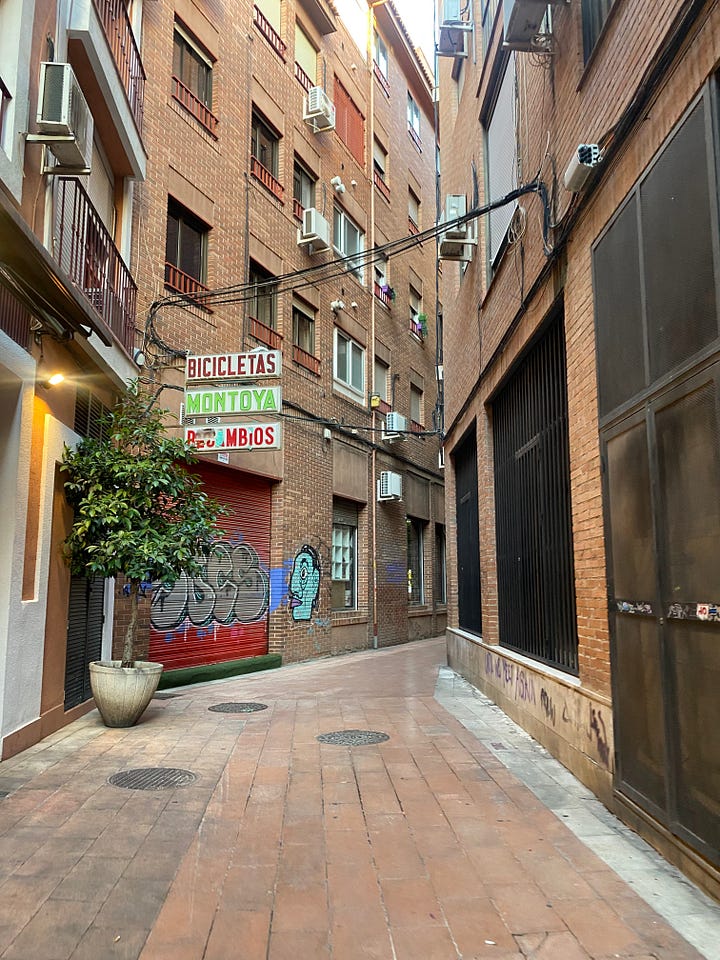
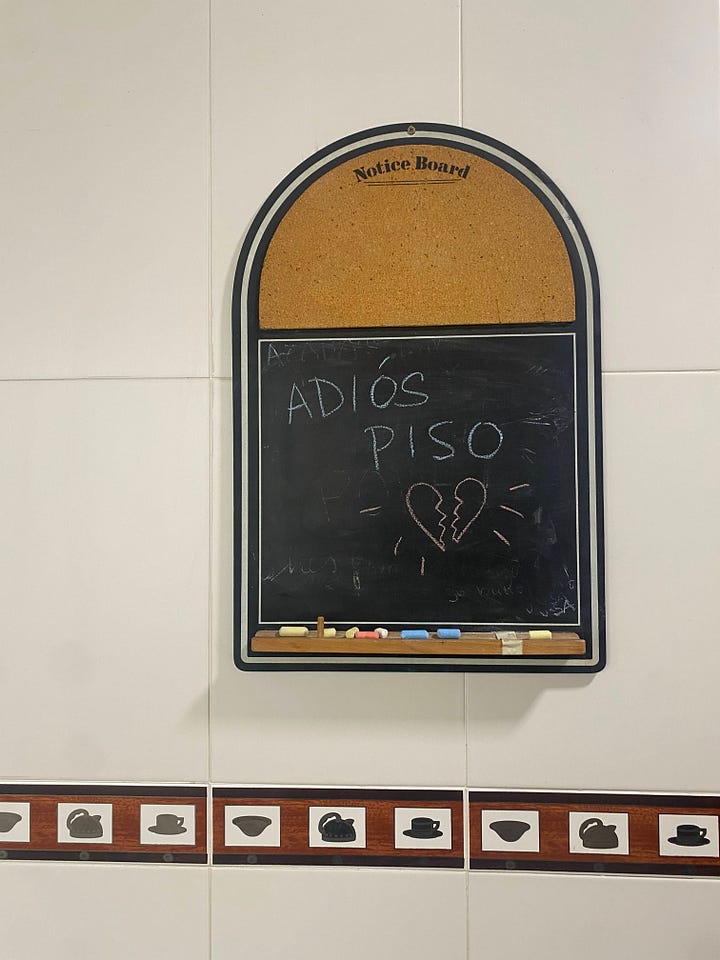
So like every new place you move to, Murcia had its challenges. Its quirks. It’s ugly parts. A bench I remember crying on. The part of the sidewalk where an electric scooter hit me. That road that always had dog shit on it. But even these parts are romanticized in my memory. How lovely it is to have such memories of challenges overcome. Benches which held me up as I had a good cry. Friends who accompanied me to doctor’s offices and on daily commutes to work and to beaches and clubs on the weekend. A city that taught me so much about myself, about Spain, and about the world. A city that accepted the challenge of becoming my home <3
La Aparecida, a pueblo in the Valencian Community, if you’re wondering.
Trapería Uno is the spot.






I’ll miss that weird kitchen and our little chats in it forever